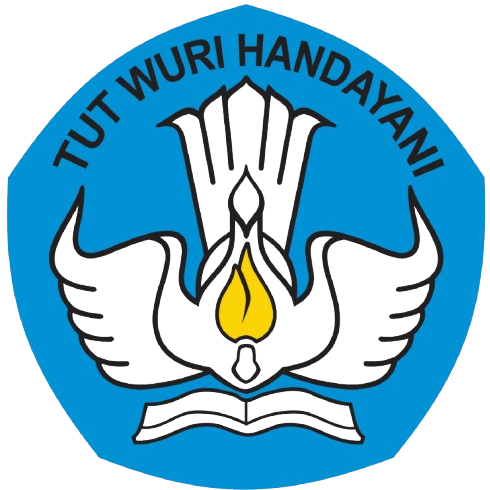Sinergi Disdik Kab. Solok dan Dinas Kesehatan dalam Penanganan Stunting
Stunting is a critical public health issue that affects children’s physical and cognitive development, particularly in rural areas. The collaboration between Sinergi Disdik Kab. Solok (Education Agency of Solok Regency) and the Dinas Kesehatan (Health Office) plays a fundamental role in addressing this multifaceted challenge by implementing effective strategies in combating stunting.
Understanding Stunting: A Public Health Concern
Stunting is defined as low height-for-age and is a direct consequence of malnutrition, particularly during the first 1,000 days of a child’s life, from conception to the age of two. The consequences of stunting are dire; children experiencing stunting may face impaired cognitive development, reduced school performance, and a higher risk of chronic diseases in adulthood. The prevalence of stunting in Indonesia has become a pressing concern, necessitating collaborative efforts from various sectors, especially education and health.
Role of Sinergi Disdik Kab. Solok
Sinergi Disdik Kab. Solok is pivotal in enhancing educational programs that promote healthy behaviors among children and their families. They focus on integrating nutrition education into school curriculums, training teachers to recognize signs of malnutrition and stunting, and fostering a supportive environment that encourages healthy eating habits.
One of the primary initiatives implemented by Sinergi Disdik is the “Sekolah Sehat” (Healthy Schools) program. This program educates students about proper nutrition, the importance of physical activity, and hygiene practices that contribute to overall health. By embedding these values in schools, children can become agents of change, reinforcing the importance of nutrition within their communities.
Dinas Kesehatan’s Role in Nutritional Health
On the health front, Dinas Kesehatan’s role is critical in providing direct health services and interventions aimed at reducing stunting rates. Their efforts are structured around several key areas:
-
Health Education Programs: Dinas Kesehatan conducts community outreach programs focusing on maternal and child health. These programs educate parents, especially mothers, about the nutritional needs during pregnancy and the critical first years of a child’s life. The emphasis is on exclusive breastfeeding for the first six months, followed by safe and nutritious complementary foods.
-
Screening and Monitoring: Regular health screenings are essential to track children’s growth and development. Dinas Kesehatan implements routine monitoring of children’s growth parameters, offering nutritional assessments that allow for early identification of stunting risks. This proactive measure helps target interventions timely.
-
Nutritional Supplementation: Recognizing that some families may struggle to access nutritious food, Dinas Kesehatan distributes nutritional supplements to at-risk populations. These supplements are often fortified with essential vitamins and minerals that are crucial for child development, particularly in impoverished areas.
-
Collaboration with Local Food Programs: Dinas Kesehatan collaborates with local producers and agricultural programs to ensure that families can access fresh fruits and vegetables at reasonable prices. This partnership not only promotes healthy diets but also supports local economies.
Synergistic Approach: Interdepartmental Collaboration
The synergistic approach between Sinergi Disdik and Dinas Kesehatan ensures that interventions are comprehensive and targeted. Regular meetings and joint training sessions foster communication, allowing both agencies to share findings and adapt programs based on community needs.
Community Engagement and Empowerment
Engaging the community is at the heart of both agencies’ strategies. By involving local leaders and health volunteers, Sinergi Disdik and Dinas Kesehatan create a supportive network that encourages families to participate in health and nutrition programs. Workshops often involve practical demonstrations of meal preparation using local ingredients, making nutrition accessible and culturally relevant.
Monitoring and Evaluation of Programs
To ensure the efficacy of their programs, both agencies prioritize monitoring and evaluation. Data collected from various initiatives helps assess the impact on stunting rates and allows for adjustments to be made where necessary. Collaborative assessment tools are used, allowing for a more holistic view of children’s health and nutrition within the context of education.
Addressing Socioeconomic Factors
A significant factor contributing to stunting is poverty. Sinergi Disdik and Dinas Kesehatan acknowledge that addressing socioeconomic determinants is essential. By providing educational opportunities and health resources, they aim to break the cycle of poverty that perpetuates stunting. Programs to improve household income, such as skills training for parents or initiatives to support local farmers, are also part of the broader strategy.
The Importance of Policy Support
Policy support from local government is crucial in sustaining the efforts by both Sinergi Disdik and Dinas Kesehatan. Advocacy for policies that enhance food security, improve access to healthcare, and promote education is vital. Strong political will can mobilize resources and elevate the importance of combating stunting in the public agenda.
Future Directions: Sustainable Practices
Looking forward, sustainability in health and nutrition practices will be paramount. Both agencies are exploring innovative solutions, such as community gardens that empower families to grow their own nutritious food. This not only addresses immediate nutritional needs but also teaches children about healthy food sources and gardening skills.
Conclusion
The collaborative efforts of Sinergi Disdik Kab. Solok and Dinas Kesehatan showcase a comprehensive model of tackling stunting. By integrating education and health services, focusing on community engagement, and promoting sustainable practices, they form a robust framework to combat stunting in Solok Regency. Their work exemplifies the power of partnership in public health initiatives, and their innovative strategies can serve as a blueprint for other regions facing similar challenges.
